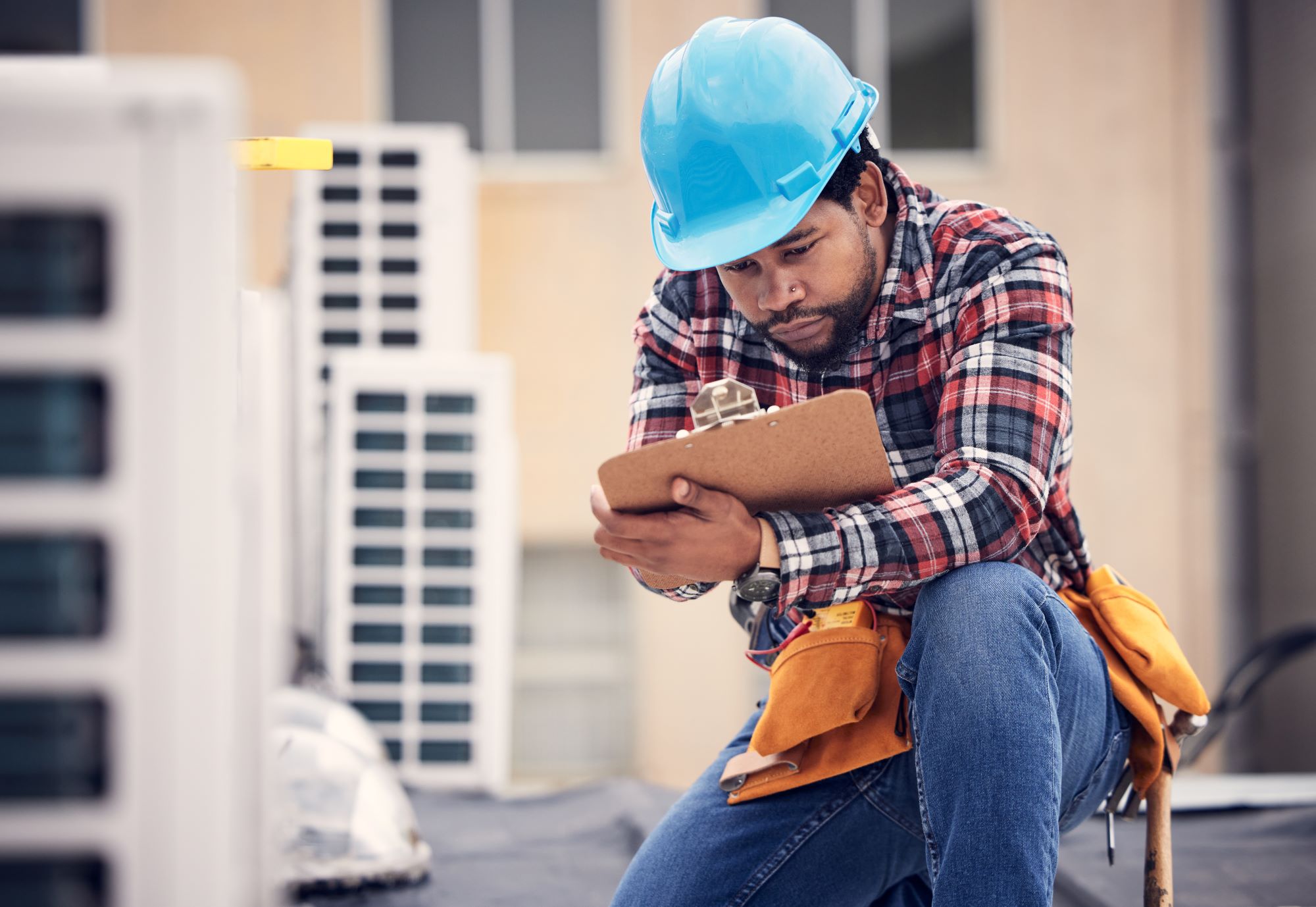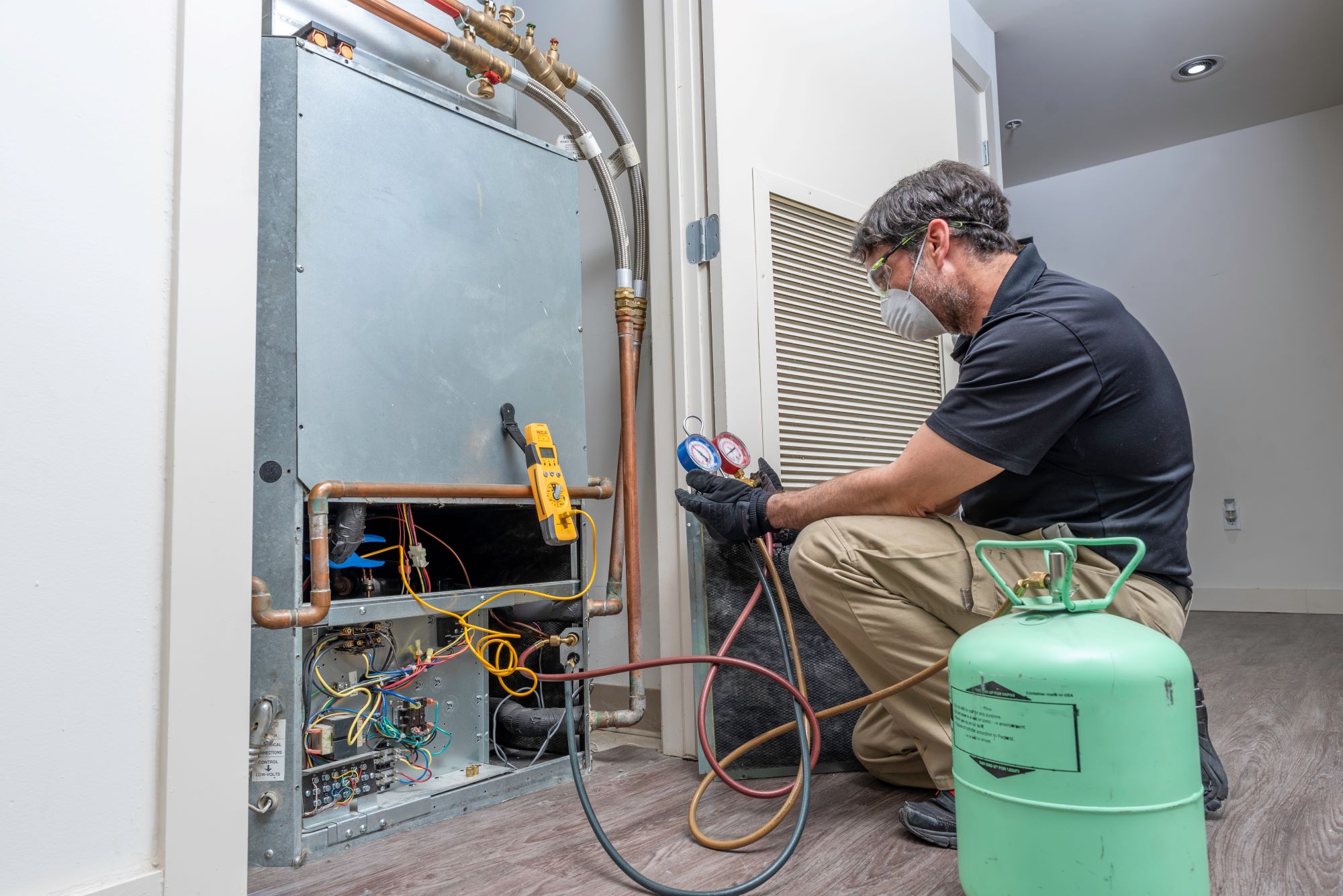An HVAC system inspection is crucial to keep your heating, ventilation, and air conditioning (HVAC) units up and running. The process also entails system cleaning to keep your units in optimum condition, reducing the need for a new HVAC system.
Regular HVAC inspections may also help extend the lifespan of your unit by allowing you to identify potential problems as early as possible. This will give you peace of mind knowing that your HVAC unit will run efficiently year-round.
But what will happen if you fail to conduct routine HVAC inspections and maintenance? If you aren’t able to inspect your units regularly, your bills will increase, and your home’s energy efficiency rate will drop. This can also lead to costly repairs.
Having your HVAC units checked at least once a year is the easiest way to ensure your system runs smoothly. If you need professional help, especially with complex issues, call a cooling company in Manassas or an HVAC repair service in your area.
Keep reading this post to learn how to inspect your HVAC units at home!
Inspecting The Furnace
A furnace is an essential part of an HVAC system. It’s responsible for heating the air circulated by your HVAC unit. Also, it’s directly connected to your thermostat, which triggers the furnace to turn on and off.
Inspecting the furnace means checking the following parts as well, including:
-
Thermostat
To get started, make sure your thermostat works properly. Test the device and check its internal wiring. See if everything’s in its proper place and is functioning as it should be.
-
Furnace Electrical Components
The electrical components of the furnace can be found inside the furnace cabinet. The HVAC technician will check whether the connections and safety features work properly.
The high-limit switch is an example of a furnace safety feature. This shuts down the furnace when it starts overheating.
-
Furnace Blower Wheel
The HVAC technician will inspect the efficiency and cleanliness of the furnace blower wheel. This part pushes the air through the HVAC system and pulls it back into the duct. If it fails to run smoothly, your HVAC system will have a hard time keeping up with the household demands. As a result, your energy consumption will skyrocket.
-
Furnace Heat Exchanger
The HVAC technician will inspect the flue pipe and heat exchanger for holes and cracks, possibly leading to carbon monoxide leakages.
To prevent gas leaks, call an HVAC professional who knows how to reduce the risk of carbon monoxide poisoning.
Inspecting your furnace is a crucial part of maintaining your HVAC system, ensuring that your home stays warm during the colder months. But what about during the warmer months? That’s where the air conditioning system comes into play. Just like the furnace, your air conditioning system also needs regular inspection to ensure it’s functioning optimally and keeping your home cool and comfortable, especially during summer.
Inspecting Air Conditioning System
An air conditioning system is responsible for keeping the home cool and comfortable, especially during summer, when temperatures are too high. You should have it inspected a month or months before summer to ensure a comfortable home when summertime comes.
Here are the things to inspect in an air conditioning system:
-
Evaporator Coil
The HVAC technician will check your AC’s evaporator coils, which are located above the furnace inside your home. If it’s dirty, moldy, and frozen, you have a problem! And if it’s left untreated for a long time, you might experience poor air circulation.
-
Condensation Line
Checking your condensation line is crucial to prevent leaks and promote comfort across your home. The HVAC technician will inspect the line and determine if it’s clogged, has holes, cracks, or loose wirings. They will also examine the condensate trap and drain to see if they’re clogged.
-
Outdoor Blower Fan And AC Condenser
Outside your home, the HVAC technician will inspect the condition of your AC condenser and blower fan. They will check if they’re working properly and evaluate their efficiency. If they’re damaged, you might need to have them replaced.
-
Refrigerant Levels
Next, the HVAC contractor will check your AC’s refrigerant levels. Usually, when ACs freeze up or fail to provide cool air across your home, it’s because of a refrigerant leak.
Let an HVAC specialist check for leaks and let them fix the issue. Then, refill your refrigerant to optimum levels. Since Freon-R22 is already banned, ask your HVAC contractor what type of refrigerant is suitable for your unit.
-
Electrical Components
The HVAC technician will check and test all the connections and wiring of your unit. This is to determine the unit’s efficiency through ampere and voltage measurement.
In addition, the HVAC technician will examine the motor capacitor and measure the ampere to ensure everything’s working perfectly. If your HVAC’s capacitor is damaged, your AC might produce humming sounds, not blow cold air, fail to turn on or shut down randomly.
What Are The Types Of HVAC Inspections?
There are three types of HVAC inspections most HVAC companies offer. These are the following:
-
Comprehensive HVAC Inspection
A comprehensive HVAC inspection provides a written report about the age of the unit, installation procedures, unit performance, and parts that require repair and replacement. This type of HVAC inspection is ideal for those who want to buy or sell a house.
In addition, this type is typically more comprehensive than a standard home inspection procedure. The HVAC technician can tell you whether your system might require future repairs and replacements.
Since HVAC systems are no small investment, a comprehensive inspection is a must. This gives homeowners everything they need to know when inspecting their HVAC’s health and lifespan.
-
HVAC Repair
This type of HVAC inspection focuses on identifying and fixing problems, especially emergency cases. Therefore, it’s not as thorough as a comprehensive HVAC inspection.
You may call for an HVAC repair if your HVAC system doesn’t produce cold air or heat your home properly. The HVAC technician will diagnose the issue and apply the best solution to ensure you have a comfortable home.
-
HVAC Tune-Ups
Inspecting HVAC systems might call for tune-ups. This type of HVAC inspection evaluates the heater and air conditioner through a multi-point process.
Experts recommend HVAC tune-ups during summer—to prepare for the summer heat—and fall—to prepare for wintertime.
How Much Does An HVAC Inspection Cost?
HVAC inspections may cost between USD$100 and USD$300, depending on the range and coverage of evaluation. Also, keep in mind that the price only covers one HVAC system. So, if you have multiple units at home, you’ll need separate assessments for each.
Final Words
HVAC systems keep your home comfortable, especially during the hot summer and cold winter months. This is why it’s important to have yours checked and inspected at least once or twice a year.
HVAC inspections may also cover cleaning, fixing, and replacing irreparable parts. If you think your HVAC system needs help, call a professional contractor who knows their job well immediately.


